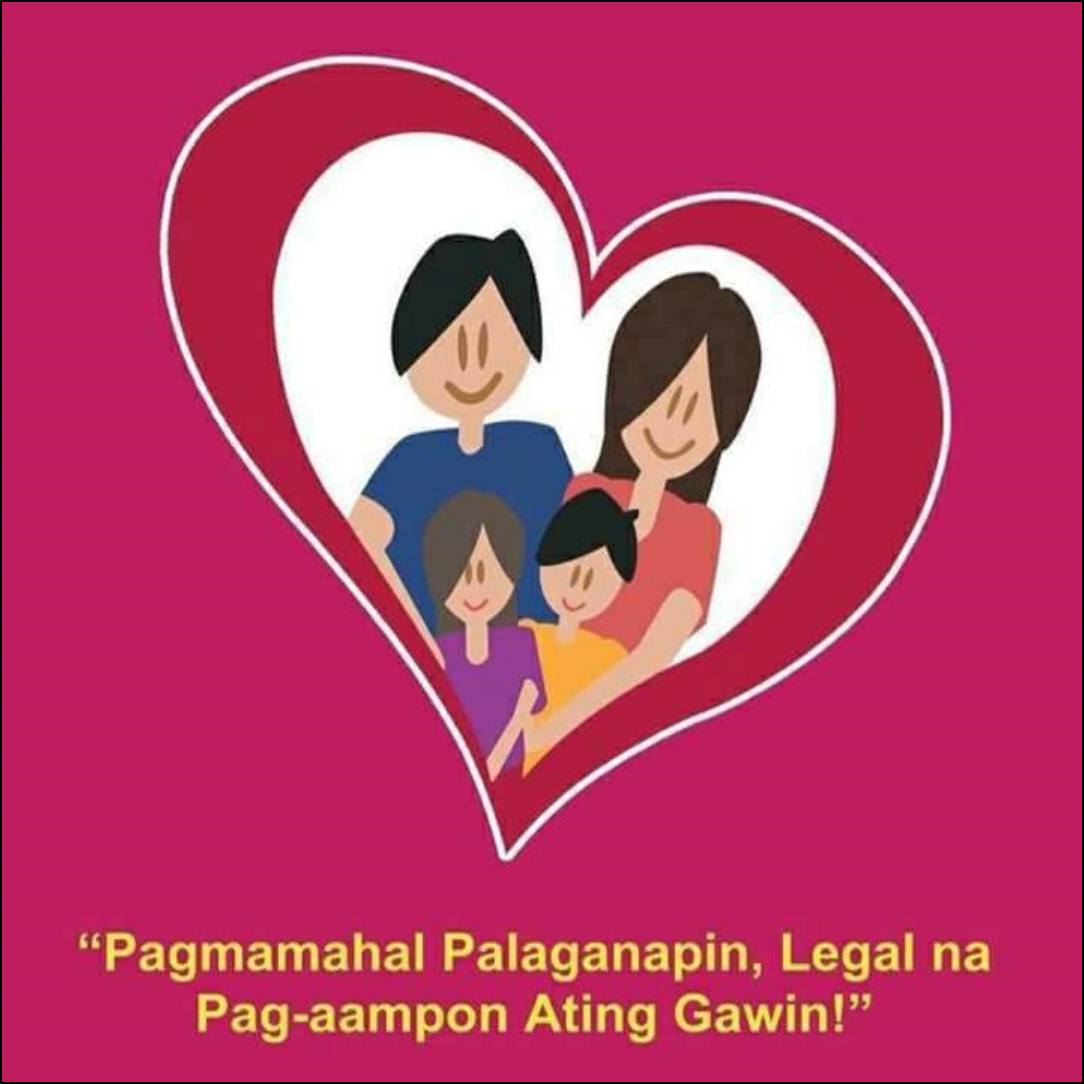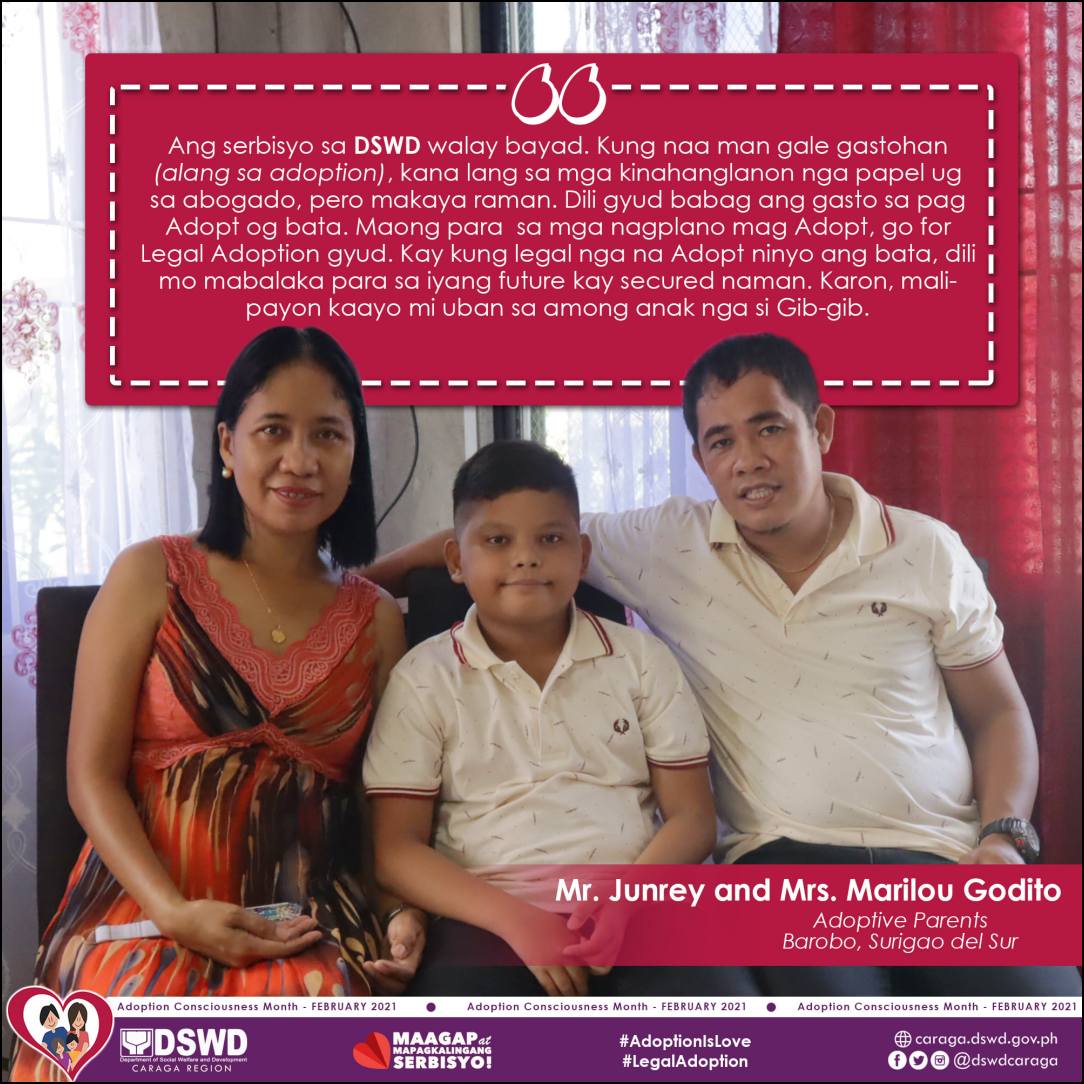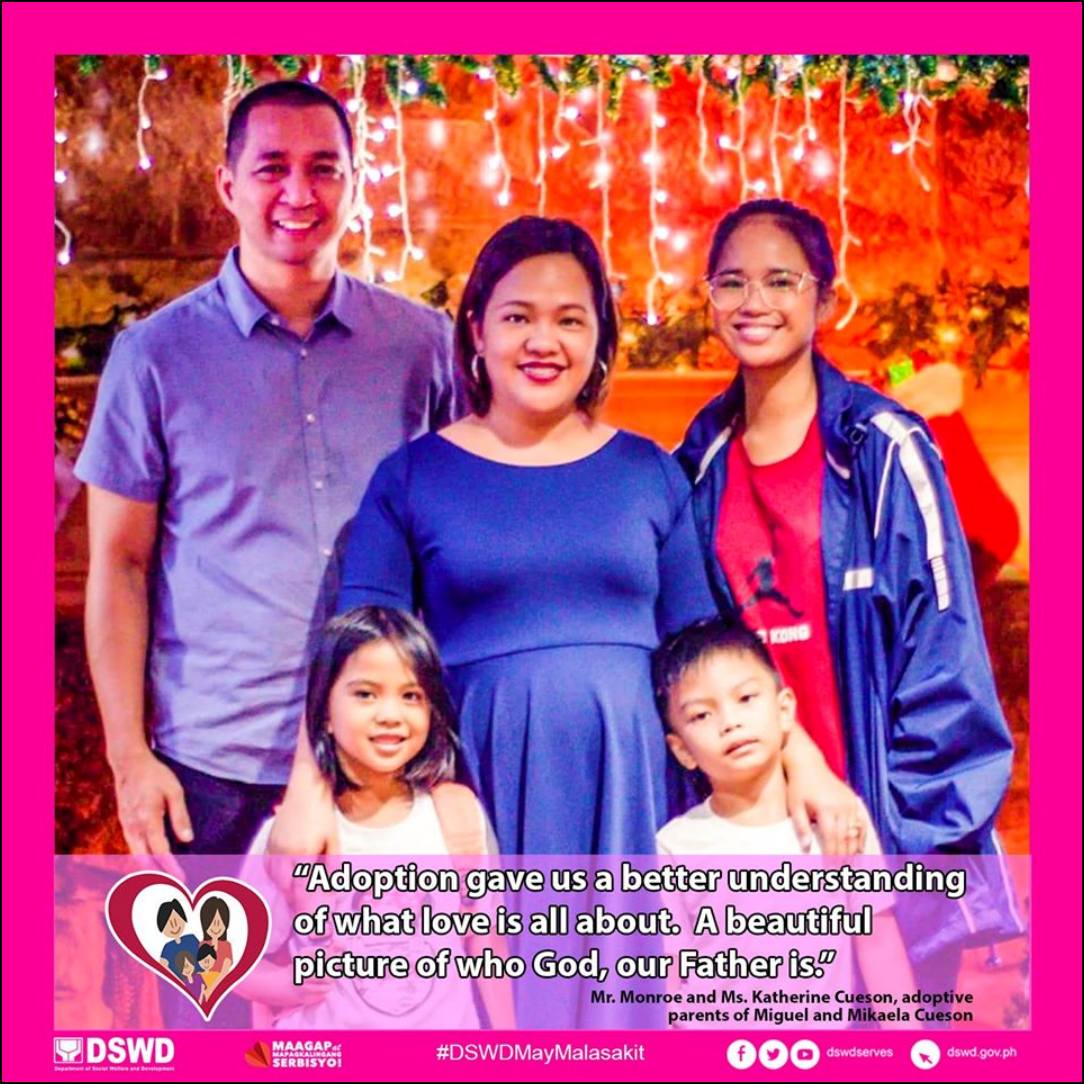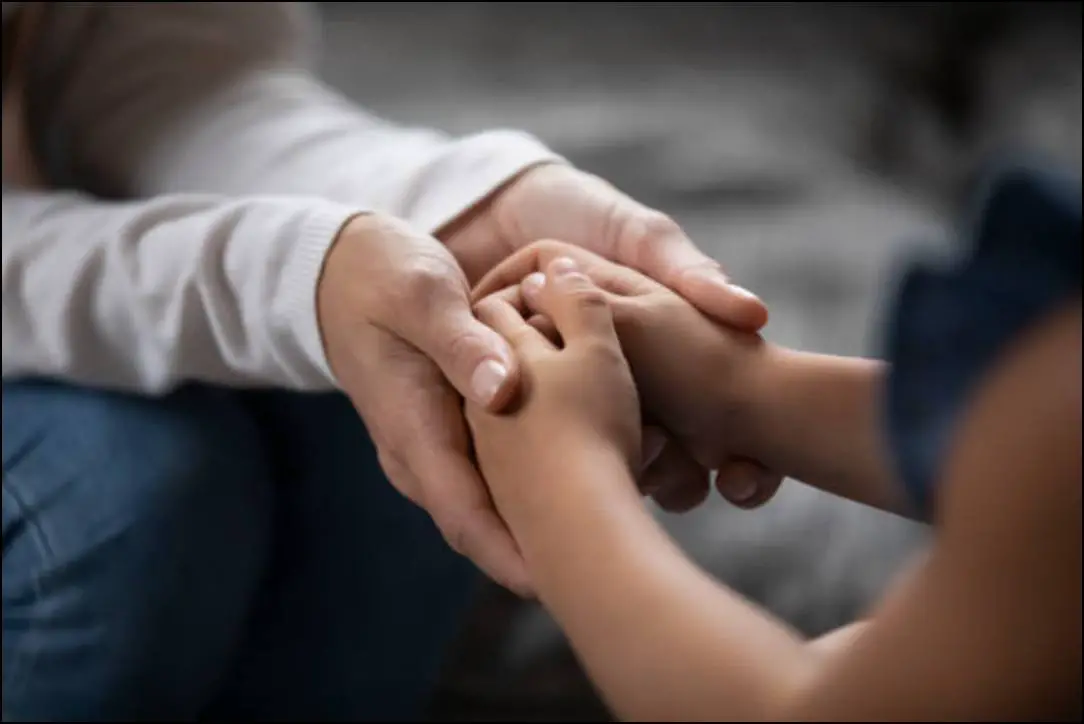The Department of Social Welfare and Development (DSWD) plays a crucial role in facilitating domestic adoption in the Philippines, as mandated by Republic Act 8552, also known as the Domestic Adoption Act of 1998. This legislation empowers the DSWD to ensure the immediate and permanent placement of a child who is legally available for adoption with a suitable adoptive family.
Also read: DSWD Program Pantawid Pamilyang Pilipino Program (4Ps): Helping Filipino Families in Need
The DSWD’s primary aim in overseeing domestic adoption is to secure the best interests of the child, providing them with a loving and nurturing family environment that promotes their overall well-being and development. By doing so, the DSWD helps create strong family units, fostering a sense of belonging and security for adopted children, while also offering support and guidance to adoptive families throughout the adoption process.

Benefits of DSWD Adoption Program
The DSWD Adoption Program offers numerous benefits for all parties involved, including the child, the adoptive family, and society as a whole.
Here are some key benefits:
- Child Welfare: The primary benefit of the program is the welfare and well-being of the adopted child. Children who are adopted through this program are given the chance to grow up in a loving, nurturing and secure family environment, which significantly enhances their social, emotional, and physical development.
- Legal Protection: The program ensures that all adoptions are carried out legally and ethically. This protects the rights of the child and the adoptive parents, and ensures that the adoption process is conducted with the utmost respect for all involved.
- Support and Guidance: The DSWD provides ongoing support and guidance to adoptive families throughout the adoption process. This includes pre-adoption counseling, post-adoption services, and resources to help families navigate the challenges and joys of adoption.
- Promotion of Family Values: By facilitating the adoption process, the DSWD promotes strong family values and bonding. It encourages the idea that family is not just about biological connections but also about love, care, and mutual respect.
- Social Impact: The program also has a broader societal impact. It helps reduce the number of children in orphanages and foster homes and gives more children the chance to have a fulfilling family life. This contributes to healthier communities and a stronger society.
- Awareness and Advocacy: The DSWD Adoption Program also plays a vital role in raising awareness about the importance and benefits of adoption. It advocates for the rights of adopted children and works towards eliminating the stigma associated with adoption.

Remember, adoption is a lifelong commitment that comes with its own set of challenges. But with the right support and guidance, it can be one of the most rewarding experiences for both the child and the adoptive family.
Who May Adopt?
According to the guidelines set by the Department of Social Welfare and Development (DSWD), the following criteria must be met by individuals seeking to adopt:
- Legal Age: The prospective adopter must be of legal age.
- Age Difference: The adopter should be at least 16 years older than the adoptee. However, this requirement may not apply if the prospective adopter is the biological parent or sibling of the adoptee, or is married to the adoptee’s parent.
- Capacity: The individual must have the capacity to act and undertake all rights and responsibilities linked to the exercise of parental authority.
- Moral Character: The prospective adopter should possess a good moral character and should not have been convicted of any crime.
- Financial Stability: The individual must be in a position to provide support, education, and care for their legitimate, illegitimate, and soon-to-be-adopted children.
- Pre-Adoption Services: The potential adopter must have completed the necessary pre-adoption services as mandated by the DSWD.
These criteria are in place to ensure that the adopted child will be in a safe, secure, and nurturing environment where they can grow, thrive, and reach their full potential.
Also read: How to Apply DSWD Medical Cash Assistance in Cebu
Who May Be Adopted?
The Department of Social Welfare and Development (DSWD) outlines specific criteria for individuals who can be adopted under the Domestic Adoption Act. These include:
- Minors: Any person under the age of 18 who has been officially declared available for adoption, either administratively or judicially.
- Step-children: A legitimate son or daughter of one spouse can be adopted by the other spouse.
- Improvement of Status: An illegitimate son or daughter can be adopted by a qualified adopter to improve their legal status to that of legitimacy.
- Consistently Treated as Own Child: A person of legal age can be adopted if they have been consistently considered and treated by the adopter(s) as their own child since minority.
- Previously Rescinded Adoption: A child whose adoption has been previously rescinded is eligible for re-adoption.
- Orphaned Child: A child whose biological or adoptive parent(s) have passed away can be adopted. However, no proceedings can be initiated within six months from the time of death of the parent(s).
These criteria are designed to ensure that adoption serves the best interests of the child, providing them with the opportunity to become part of a permanent and loving family.
Requirements to Adopt a Child Through DSWD
To facilitate a smooth adoption process, the Department of Social Welfare and Development (DSWD) requires prospective adoptive parents to provide a comprehensive set of documents. These requirements ensure that the child’s best interests are prioritized throughout the process.
General Requirements
- Home Study Report: This report, prepared by a social worker, provides an in-depth look at the prospective adoptive family’s life, including their home environment and relationships.
- Certificate of Attendance in a Pre-Adoption Seminar: This certificate verifies that the prospective adoptive parents have completed the mandatory pre-adoption seminar.
- Adoptive Family Profile: This document offers a detailed profile of the prospective adoptive family.
Required Documents
- Certificate of attendance from the Adoption Orientation.
- Home Study Report prepared by a social worker.
- Authenticated birth certificates of the prospective adoptive parents.
- Marriage contract or documentation of divorce, annulment, declaration of nullity, or legal separation, if applicable.
- Physical and Medical Evaluation conducted by a duly licensed physician.
- Psychological evaluation report, if deemed necessary.
- NBI/Police Clearance to ensure the safety and security of the child.
- Latest income tax return or other documents showing financial capability such as a certificate of employment, bank certificate, or statement of assets and liabilities.
- Three letters of character references from non-relative individuals who have known the applicants for at least three years. These can be from a local church minister, employer, or community member.
- Recent 3×5 size pictures of the applicants and their immediate family (5-10 pictures).
- Notarized affidavit of temporary custody identifying a relative who would assume custody of the child in the event of the absence or death of the adoptive parents.
- Written consent for the adoption from the legitimate and adopted sons/daughters and illegitimate sons/daughters living with the applicant, who are at least 10 years old.
Please note that the exact requirements may vary and it’s always best to consult directly with DSWD or an accredited adoption agency for the most accurate information.
Also read: How to Apply DSWD Cash Aid Transportation Assistance
Requirements for Foreign Nationals Who Would Like to Adopt through DSWD
For foreign nationals seeking to adopt in the Philippines, the Department of Social Welfare and Development (DSWD) has set specific requirements to ensure the welfare and best interests of the child. These include:
- Verification of Legal Capacity to Adopt: This verifies that the prospective adoptive parent or parents have the legal capacity to adopt in their country of origin.
- Certificate of Residence: The applicant must provide a Certificate of Residence in the Philippines issued by the Bureau of Immigration or the Department of Foreign Affairs. This document verifies their residency status in the country.
- Character References: Two references from non-relatives who are familiar with the applicants are required. These references should be from individuals in the country of which the applicants are citizens or where they previously resided, unless the applicants have lived in the Philippines for more than 15 years.
- Clearance from Previous Residences: The applicants must provide clearance from the police in all the places they have resided.
These requirements aim to ensure that the prospective adoptive parents are of good moral character, financially capable, and legally eligible to adopt. As always, it’s recommended to consult directly with DSWD or an accredited adoption agency for the most accurate and up-to-date information.
Adoption Process
Adopting a child is a significant decision, and the Department of Social Welfare and Development (DSWD) has established a step-by-step process to guide prospective parents through this journey.
Step 1: Adoption Forum Attendance
- The first step is attending the adoption forum, which is held every first Thursday of the month from 9 am to 12 pm. This forum provides valuable insights into the adoption process and what to expect.
Step 2: Submission of Required Documents
- Next, all required documents should be submitted for review. These documents provide vital information about the prospective adoptive parents’ background, financial status, and family environment.
Step 3: Home Visit/Assessment
- A social worker will conduct a home visit to assess the living conditions and family dynamics. This evaluation is crucial in ensuring a safe and nurturing environment for the child.
Step 4: Preparation of Home Study Report
- Based on the home visit, the social worker prepares a comprehensive home study report. This report plays a significant role in the matching process.
Step 5: Matching Conference
- During the matching conference, social workers and psychologists review the home study reports and match the child with the most suitable adoptive family.
Step 6: Acceptance of the Adoptive Child
- Once a match is made, the prospective parents are introduced to the child. This is a critical step where the child and the adoptive parents start building their relationship.
Step 7: Child Placement
- After the introduction, the child is placed with the adoptive parents. This period allows the child and parents to adjust and bond before the legal adoption process begins.
Step 8: Filing of Petition for Adoption
- Once the child and parents have settled in, the adoptive parents can file the petition for adoption. This legal process finalizes the adoption and grants the adoptive parents full parental rights.
Step 9: Issuance of Amended Birth Certificate
- After the court approves the adoption, an amended birth certificate is issued, reflecting the adoptive parents’ names.

Remember, adoption is a lifelong commitment that transforms the lives of both the child and the adoptive parents. It’s a journey filled with love, challenges, and endless rewards.
Where to File the Adoption Application
Filing an adoption application in the Philippines can be done at several designated locations. Each of these offices has trained professionals who can guide you through the process. Here are the places where you can file your adoption application:
- DSWD Field Offices: These offices located across the country are managed by the Department of Social Welfare and Development. They can provide detailed information about the adoption process and assist with the application.
- Local Social Welfare and Development Offices: You can also submit your application at your local Social Welfare and Development Office. These offices cater to the local community and can offer personalized assistance.
- Regional Trial Courts: Adoption applications can be made at Regional Trial Courts. These courts have jurisdiction over adoption cases and can provide legal advice and services.
- Kaisahang Buhay Foundation, Inc.: This is a private, non-profit child and family welfare organization that is licensed and accredited by the DSWD to implement the full range of child welfare programs.
- Norfil Foundation, Inc.: This is another non-profit, social welfare organization that provides services to children and families, particularly those who are marginalized. They offer adoption services and are accredited by the DSWD.
Remember, it’s always best to consult directly with these offices or organizations for the most accurate and up-to-date information about the adoption process.
Cost of Adoption
Adopting a child through the Department of Social Welfare and Development (DSWD) in the Philippines does not involve any service fees. The DSWD’s adoption services are completely free of charge as part of their commitment to ensuring that every child finds a loving and nurturing home.
However, prospective adoptive parents should be aware that there may be incidental costs involved in the process. These can include expenses related to securing the necessary documents and requirements for the adoption application such as birth certificates, medical evaluations, legal clearances, etc.
It’s always recommended to consult with DSWD or an accredited adoption agency to get a clear understanding of any potential costs that may arise during the adoption process.
Testimonies and Success Stories
1. “The services provided by DSWD for adoption are free of charge. Any expenses incurred (for adoption) are typically for necessary paperwork and attorney fees, but these are manageable. The cost should not be a hindrance to adopting a child. Therefore, for those planning to adopt, we strongly advise going for legal adoption. When you legally adopt a child, you won’t have to worry about their future because it’s secured. Now, we are extremely happy with our child, Gib-gib.”
This sentiment is shared by Mr. Junrey and Mrs. Marilou Godito, proud adoptive parents from Barobo, Surigao del Sur.

2. Adoption opened up a new perspective on the true meaning of love for Mr. Monroe and Ms. Katherine Cueson. This transformative journey into parenthood through adoption offered them a profound reflection of God’s unconditional love. As proud adoptive parents of Miguel and Mikaela Cueson, they are a testament to the boundless capacity of love that adoption brings into a family’s life.

Helpful Tips for Individuals Who are Interested in Adopting Child
Adopting a child can be one of the most rewarding experiences in life. Here are some tips for individuals who are interested in this journey:
- Research Thoroughly: Understand the adoption process in your country or state. The rules and regulations can vary, so it’s crucial to know what’s expected.
- Attend Adoption Seminars: These sessions provide valuable insights into the adoption process, potential challenges, and the joys of raising an adopted child.
- Reflect on Your Motivations: Make sure you’re adopting for the right reasons. It’s a lifelong commitment and should not be taken lightly.
- Prepare Financially: While services from agencies like DSWD are free, there could be costs related to paperwork, legal fees, etc. Plan your finances accordingly.
- Exercise Patience: The adoption process can be lengthy and involves a lot of waiting. Patience will be your best friend during this time.
- Keep an Open Mind: Every child has a unique background and may come with their own set of challenges. Be open to embracing these differences and loving the child unconditionally.
- Build a Support Network: Connect with other adoptive parents or support groups. They can provide invaluable advice and emotional support.
- Opt for Legal Adoption: Always choose legal adoption to ensure the child’s rights are protected, and their future is secure.
- Seek Post-Adoption Support: Look for resources and groups that can help navigate the post-adoption journey. This can be very helpful as you adjust to your new life as an adoptive parent.
- Love Without Conditions: Provide a nurturing, loving environment for your adopted child. Remember, adoption is about giving a child a secure and loving home.

Frequently Asked Questions
1. What is a home study report and why is it important?
A: A home study report is prepared by a social worker and provides an in-depth look at the prospective adoptive family’s life, including their home environment and relationships. It’s crucial in the child and family matching process.
2. What happens during the matching conference?
A: During the matching conference, social workers and psychologists review home study reports and match the child with the most suitable adoptive family.
3. What is meant by ‘acceptance of the adoptive child’?
A: Once a match is made, the prospective parents are introduced to the child. This step allows the child and the adoptive parents to start building their relationship.
4. What happens after the child is placed with the adoptive parents?
After the introduction, the child is placed with the adoptive parents. This period allows the child and parents to adjust and bond before the legal adoption process begins.
5. What legal process needs to be followed after the child placement?
A: After the child and parents have settled in, the adoptive parents can file a petition for adoption. This legal process finalizes the adoption and grants the adoptive parents full parental rights.
6. What changes occur in the birth certificate after adoption?
A: After the court approves the adoption, an amended birth certificate is issued, reflecting the adoptive parents’ names.
7. What support is available to adoptive parents during the adoption process?
A: DSWD and accredited adoption agencies provide guidance and support throughout the adoption process. They offer counseling, facilitate the required adoption seminars, assist with the paperwork, and provide post-placement support.
8. Can the adoption process be reversed or rescinded once completed?
A: Contrary to popular belief, not all adoptions are permanent from a legal perspective, and they can be reversed, overturned, or cancelled depending on the circumstances. Nevertheless, it is essential to note that the process for cancelling or reversing an adoption can be complicated.
Video: DSWD: The Process of Legal Adoption
Summary
Every child deserves a loving and nurturing home, but unfortunately not everyone is able to provide that. Fortunately, the Department of Social Welfare and Development (DSWD) is there to help. The DSWD facilitates the adoption process, ensuring that children are placed in safe, loving homes with responsible adoptive parents. With their compassionate staff and thorough vetting process, the DSWD makes sure every adoption is a success. Adoption through the DSWD is a wonderful way to give a child the love and security they deserve.
Contact Information
Contact Number: (032) 233 0261
Email: fo7@dswd.gov.ph
Website: fo7.dswd.gov.ph
